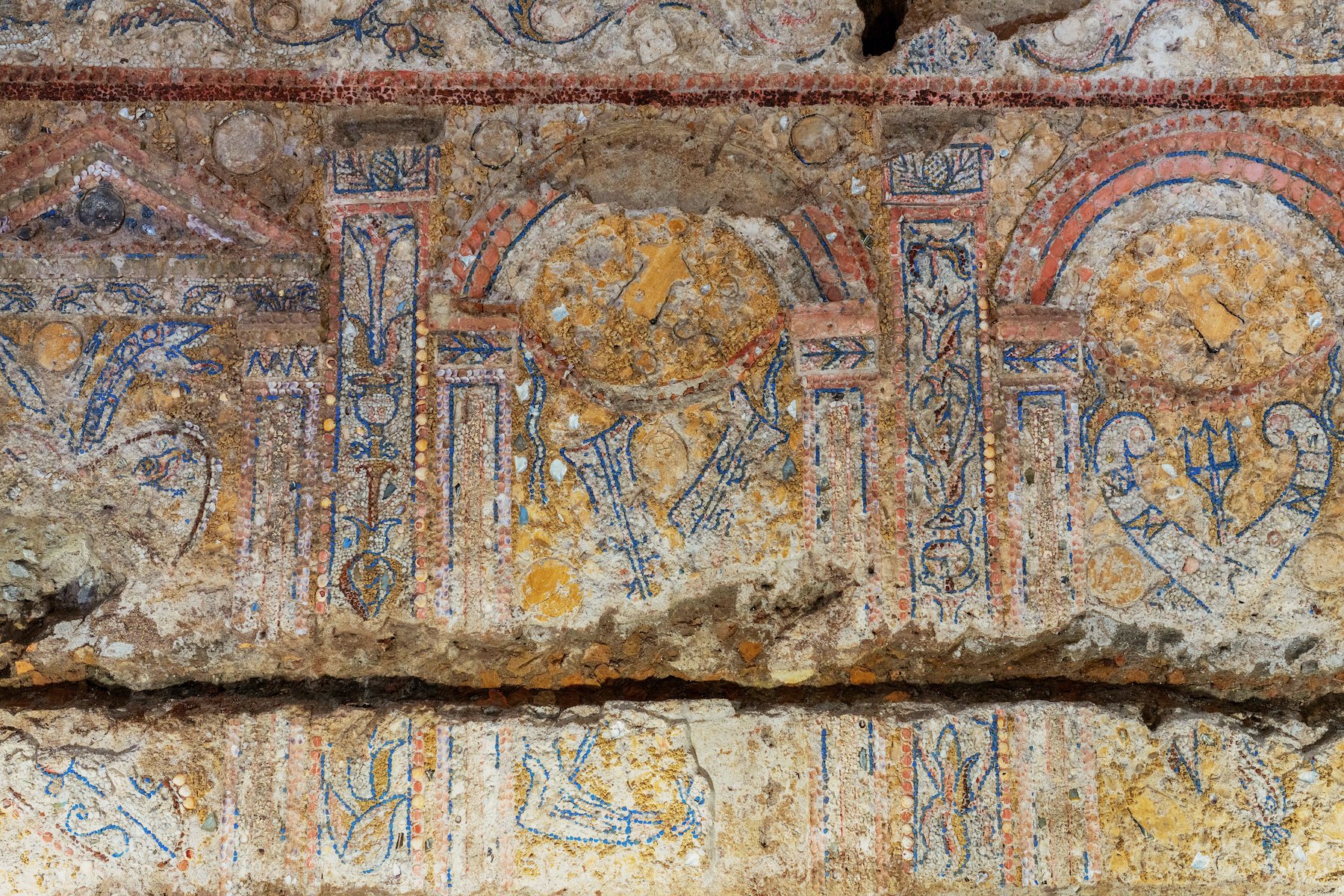
Researchers working in the Archaeological Park of the Colosseum in Rome have shared their discovery of luxurious mosaic-tiled rooms found in an ancient home on the site, which they believe may have belonged to a Roman senator. Created from shells, glass, white marble, and Egyptian blue tiles, the mosaics have been described by Italy’s Culture Minister Gennaro Sangiuliano as “an authentic treasure”.
The “rustic” mosaics, found on the grounds surrounding the Colosseum in the heart of the city, date to the late Republican Age, in the last decades of the second century B.C.E., and show a series of figurative scenes. They once decorated a townhouse, or domus, owned by an upper class citizen. Italy’s Ministry of Culture have said that “due to the complexity of the scenes depicted” and their age, the mosaics are “without comparison.”
One mosaic depicts a coastal city with towers and porticos, with three large ships floating by on the ocean waves. The culture ministry believes this could be a reference to naval victories achieved by the owner of the home, which is believed to have been a Roman senator. This is supported by historical sources describing the area as having been occupied by such high-ranking members of society.
The “rustic” mosaics date to the late Republican Age, in the last decades of the second century B.C.E., and show a series of figurative scenes. Photo: via Italian Ministry of Culture.
The decorated walls were likely located in the home’s dining rooms, where luxurious banquets would be hosted, and guests at these events were likely wowed with “spectacular water games,” according to the culture ministry, based on the presence of lead pipes set into the walls.
In the reception room, an extremely well preserved decorated stucco featuring landscapes and figures was also discovered. Other designs include vines and lotus leaves flowing from vases, musical instruments, and tridents.
A detail of the Colosseum mosaics, showing the materials it was made from, including shell and Egyptian blue tile. Photo: via Italian Ministry of Culture.
The mosaic walls were first discovered near the Colosseum in 2018, but excavation at the site will continue into 2024, and more rooms could be discovered. Alfonsina Russo, the Director of the Archaeological Park of the Colosseum, has said that once the domus is full uncovered, “we will work intensely to make this place, among the most evocative of ancient Rome, accessible to the public as soon as possible.”
Other mosaic designs include lotus leaves flowing from vases and musical instruments. Photo: via Italian Ministry of Culture.
More Trending Stories:
Art Dealers Christina and Emmanuel Di Donna on Their Special Holiday Rituals
Stefanie Heinze Paints Richly Ambiguous Worlds. Collectors Are Obsessed
Inspector Schachter Uncovers Allegations Regarding the Latest Art World Scandal—And It’s a Doozy
Archaeologists Call Foul on the Purported Discovery of a 27,000-Year-Old Pyramid
The Sprawling Legal Dispute Between Yves Bouvier and Dmitry Rybolovlev Is Finally Over